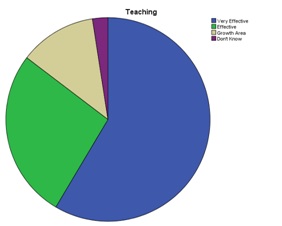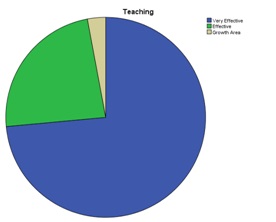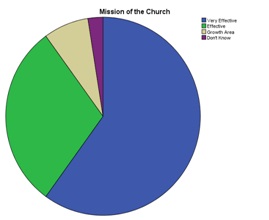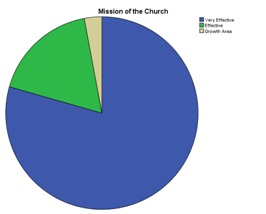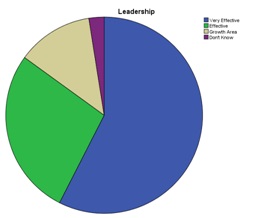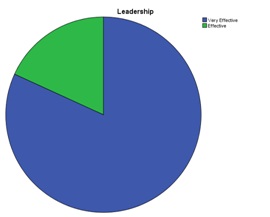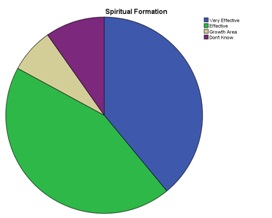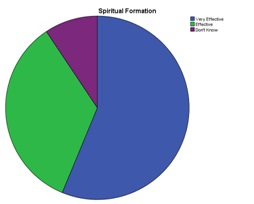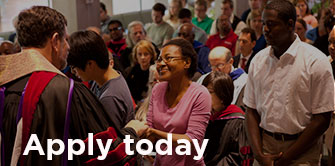Consumer Education
For a listing of Wesley faculty, including their education, training and experience, courses taught and publications, visit our faculty page.
Accreditation is a voluntary, nongovernmental process that gives public recognition to institutions that meet published standards of academic and administrative quality.
The purpose of accreditation is to assure the public of the quality of an institution and its dedication to high standards, as well as its commitment to continuous improvement.
The U.S. Department of Education formally recognizes accrediting commissions that meet all federal standards. Further, the Council on Higher Education Accreditation (CHEA) extends recognition to accrediting bodies and their institutions that meet established quality standards.
Wesley Theological Seminary and its degree programs (M.Div., M.A., M.T.S., and D.Min.) are accredited by the following professional, regional, and religious organizations:
- The Commission on Accrediting of the Association of Theological Schools in the United States and Canada 10 Summit Park Drive, Pittsburgh, PA 15275 (412) 788-6505 phone (412) 788-6510 fax, www.ats.edu
- Middle States Commission on Higher Education (MSCHE) 3624 Market St., Philadelphia, PA 19104 (215) 662-5606 phone, www.msche.org
- The University Senate of The United Methodist Church – General Board of Higher Education and Ministry (GBHEM) P.O. Box 340007, Nashville, TN 37203-0007 (615) 340-7400 phone www.umc.org
Wesley Theological Seminary is licensed by: The Government of the District of Columbia Education Licensure Commission 1050 First Street, NE, Washington, DC 20002. Phone: (202) 727-6436.
As an accredited institution, Wesley is eligible to participate in federal educational entitlement programs such as Title IV financial aid including Pell Grants, military tuition assistance, government tuition reimbursement programs, the Department of Veterans Affairs’ GI Bill and Yellow Ribbon programs, and many corporate education assistance programs.
The Seminary is an employer supporter of the National Guard and Reserve and is a member of the Association for Clinical Pastoral Education. Credits and degrees earned through Wesley are recognized for promotion, assignment, and position qualification standards within the military and federal government.
Wesley's campus consists of a chapel, library, residence hall, apartment building, administrative building, dining hall, faculty offices, classrooms, and community meeting areas. Wesley is one of the most diverse seminaries in the world. Within the community of about 500 students, 56% are women, 48% are an ethnic minority, and 38 denominations are represented. The campus is located in Washington, D.C., with the main campus in the northwest quadrant of the District and a downtown location at 900 Massachusetts Ave. NW.
Wesley offers four degrees: Master of Divinity, Master of Theological Studies, Master of Arts, and Doctorate of Ministry, as well as dual degrees with American University adjacent to the Wesley campus.
The Master of Divinity degree prepares students for the practice of Christian ministry. Most candidates for this degree seek to become qualified for ordination, and the design of the degree program comprises the basic ordination requirements of most Christian denominations.
The Master of Arts degree provides the most flexible program design and the fewest number of credit hours and is intended to support working professionals and others who are seeking a theological grounding for those pursing non-ordained ministries, whether that be a call to lay leadership, social justice activism, or other service in the world.
The Master of Theological Studies degree is offered to provide general theological understanding that equips graduates to reflect thoughtfully and faithfully on their life and work that enables lay members to participate more effectively in the mission of the church. It also provides background in theological disciplines as a foundation for further graduate study. While not designed to provide qualification for ordained ministry, the M.T.S. degree can provide a structure for meeting certification requirements for various forms of lay ministry.
The mission of Wesley Theological Seminary is to equip persons for Christian ministry and leadership in the church and the world, to advance theological scholarship, and to model a prophetic voice in the public square. To this end, our curriculum strives toward greater educational excellence in the following areas: Religious Heritage, Cultural Context, Ministerial and Public Leadership, and Personal and Spiritual Formation.
For the full text of our curricular goals and objectives, please see page 60 of our academic catalog.
One measure of outcomes in our graduation rate in 2017 60% our students graduated in 4 years or less.
Another key measure of outcomes results from our annual participation in the Association of Theological Schools (ATS) Graduating Student Survey. Students rate effectiveness in skills in the primary areas of the core curriculum the results of the last several years are available in this PDF.
Another key measure of student learning outcomes is the evaluation of students by clergy learning partners in their places of ministry. Particular questions on the Practice of Ministry and Mission (PMM) Year End Field Evaluations have been linked to each of our curricular objectives and serve as indicator questions for assessing student learning under each objective.
Data show that over a two year period, students are consistently rated higher in each area. What follows is a selection of questions from the interim report; the full report on PMM data and student outcomes is forthcoming:
Religious Heritage
Indicator Question 2. Teaching: Demonstrates competence in basic theology, biblical studies, and Christian practices.
PMM I
PMM II
Cultural Context
Indicator Question 4. Mission of the church: Demonstrates ability and sensitivity to think ecumenically and globally considering the church in the larger community.
PMM I
PMM II
Ministerial and Public Leadership
Indicator Question 7. Leadership: Thinks critically-both about the practices of the church and about the world in which the church finds itself-and shows potential to be an agent of transformation in both.
PMM I
PMM II
Personal and Spiritual Formation
Indicator Question 18. Spiritual Formation: Evidences a commitment to personal prayer, Bible Study, and reading for spiritual growth.
PMM I
PMM II
We recognize that some students will require substantial assistance in meeting the costs of preparation for ministry. Accordingly, Wesley Theological Seminary has a comprehensive financial aid program consisting of scholarships, need-based grants, on- and off-campus employment through the federal work-study program, Wesley work-ship, and church placements and internships in the Washington, D.C. area. For more information on all types of student aid, how eligibility is determined and for necessary procedures and forms for applying for aid, and loan disclosures for borrowers, visit financial assistance.
FERPA is a federal law enacted to protect the privacy of students' education records by requiring us to treat records in a legally specified manner. It applies to all institutions that receive funds under any Department of Education program and is enforced by the Family Policy Compliance Office, DOE. Under FERPA, students have the following rights:
- To inspect and review education records
- To challenge the accuracy of the records
- To request amendment to the records
- To prevent unauthorized disclosure of records
- To waive these rights in writing
- To file a complaint with the US DoE about a FERPA violation
- To be informed about education records
FERPA Update, 2012: As of January 3, 2012, the U.S. Department of Education’s FERPA regulations expanded the circumstances under which student education records and personally identifiable information contained in such records including Social Security Numbers, grades, or other private information may be accessed without student consent. First, the U.S. Comptroller General, the U.S. Attorney General, the U.S. Secretary of Education, or state and local education authorities (Federal and State Authorities, including District of Columbia Authorities) may allow access to student records and personally identifiable information without student consent to any third party designated by a Federal or State Authority to evaluate a federal- or state-supported education program.
The evaluation may relate to any program that is principally engaged in the provision of education, such as early childhood education and job training, as well as any program that is administered by an education agency or institution. Second, Federal and State Authorities may allow access to student education records and personally identifiable information without student consent to researchers performing certain types of studies, in certain cases even when the educational institution (i.e. Wesley Theological Seminary) objects to or does not request such research. Federal and State Authorities must obtain certain use-restriction and data security promises from the entities that they authorize to receive student personally identifiable information, but the Authorities need not maintain direct control over such entities. In addition, in connection with Statewide Longitudinal Data Systems, State Authorities may collect, compile, permanently retain, and share without student consent personally identifiable information from student education records, and they may track student participation in education and other programs by linking such personally identifiable information to other personal information about students that they obtain from other Federal or State data sources, including workforce development, unemployment insurance, child welfare, juvenile justice, military service, and migrant student records systems.
For more comprehensive information regarding these right and the handling of FERPA regulations at Wesley, please see the student handbook and catalog.
In order to maintain a drug-free study and work environment where the use, manufacture, possession, transfer, dispensing, distribution or sale of illicit drugs and alcohol on campus is prohibited, Wesley Theological Seminary abides by the following policy:
Sanctions and Standards of Conduct:
Out of respect for our bodies as temples of the Holy Spirit, as good stewards of our relationships with one another, and in compliance with the United States law, the unlawful possession, use or distribution of all illegal drugs, as well as prescription drugs or controlled substances taken for non-medical reasons, is prohibited. Additionally Wesley prohibits the unlawful and/or abusive use, possession and distribution of alcohol on campus.
Violators of this policy are subject to disciplinary action and are required to participate in a rehabilitation program. Failure to participate in a rehabilitation program may lead to dismissal, termination, and/or referral for prosecution by law enforcement agencies. An employee or student who begins work or attends class in an impaired state or who becomes impaired during the course of work or class is also subject to disciplinary action.
The seminary recognizes that substance abuse is a complex health problem. Health risks associated with drug and alcohol abuse are covered in the student handbook.
This policy will be reviewed and disseminated annually to all students and employees. In addition, as a condition of admission and employment, each student and employee is expected to abide by this policy and to notify the associate dean for community life of any of the above noted violations.
Wesley Theological Seminary is committed to providing equal access to seminary educational programs for all qualified students with learning, physical, medical or psychological disabilities. Section 504 of the Rehabilitation Act of 1973, the Americans with Disabilities Act of 1990, and the D.C. Human Rights Act prohibit discrimination against individuals with disabilities. Specifically, these laws require the seminary to provide reasonable accommodation for qualified individuals with a disability to ensure their equal access and participation in seminary programs. Once admitted to Wesley, students needing accommodations are encouraged to self-identify to the associate dean for community life. Students should submit to the associate dean relevant, current documentation from a qualified professional, which will be evaluated by a consultant with special training in disabilities.
All buildings on campus are accessible for wheelchair-bound students through elevators, wheelchair lifts where elevators are not present and mechanical doors. There are accommodations on the first floor of Straugn dormitory for students in wheelchairs and handicapped parking spaces are available.
For students who are blind or visually impaired there is Braille signage outside classrooms and restrooms. Audio book versions of texts are also utilized as well as the conversion of texts to electronic files so that visually impaired students may use software to read or hear their texts on computers.
For students with auditory disabilities, we have hearing assistance in the chapel and accommodations in the classroom, including interpreters.
To ensure that all customer information is safeguarded, Wesley uses available industry standard security platforms and networking techniques to protect against any intrusion. To establish and maintain a comprehensive information security system, we separate the network between staff and student users so that no data can be peered by non-contracted Wesley staff.
We also encrypt our backed-up data before it is sent to our off site data store. The IT manager always consults office managers to ensure their staff members have the access they need, but more than they need. We keep all of this up to date to insure the security and confidentiality of customer information, protect against anticipated hazards and threats to that security and protect against unauthorized use that could result in harm or inconvenience to the customer.
Few personnel have access to or touch the actual client data that mixed in with our physical and software based security systems that we understand at all times who controls this data and has access to it. All software work is done in-house so access to our data is cut off. Any physical work done to the network is managed by licensed and bonded contractors who have contracts that also protect our data. We are audited each year and are flagged for anything our auditors see, if anything, that may be problematic to the integrity of our data and security of customer information.
The safety and well-being of all members of our community are of great concern to Wesley Theological Seminary. While we are happy to report that Wesley is an infrequent location for many crimes, a safe environment depends on the cooperation and involvement of individuals in safeguarding themselves and others. We encourage all members of the Wesley Seminary community to use this report as a guide for safe practices on and off campus.
The office of community life prepares this report to comply with the Jeanne Clery Disclosure of Campus Security Policy and Crime Statistics Act.
The office of community life relies on members of the community to report any criminal activity that they witness or of which they are victims to the community life office or to any Wesley campus official (including but not limited to directors, deans, department heads, resident managers, advisers to students and student organizations and administrators). These reports are combined with information from the Metropolitan Police Department, to compile the information.
This publication contains information to aid in the cooperative effort of creating a safer campus. It contains specific information on safety and security including fire safety, policies relating to reporting crime, and crime statistics for the three previous calendar years. These statistics reflect reported crimes that occurred on campus, in any off-campus buildings or property owned or controlled by Wesley Theological Seminary, and on public property that is immediately adjacent to and accessible from the campus.
This publication is posted on Wesley’s web site by October 1 each year. We notify all students, staff, and faculty of the Web site via e-mail, as well as through informational postings within the campus.
All current or prospective faculty, staff, and students can obtain a paper copy by calling 202-885-8612, visiting the office of community life on campus or by writing to:
Annual Security Report Request Community Life Wesley Theological Seminary 4500 Massachusetts Avenue, NW Washington, DC 20016
Fire Safety Reports and Student Housing: See the community life section.
Voter Registration: For information on absentee voting, click here.
Vaccinations: All students 26 years of age and younger must provide proof of immunization against measles, mumps, polio, rubella and tetanus. This is a District of Columbia requirement. Disclosure forms are available in the Office of Community Life.
Constitution Day: Wesley Theological Seminary participates in Constitution Day commemorating and promoting the awareness of the signing of the U.S. Constitution on September 17, 1787 through campus-wide activities that vary from year to year.

